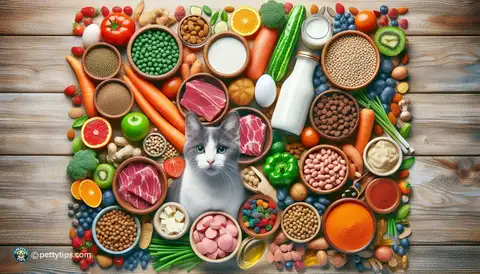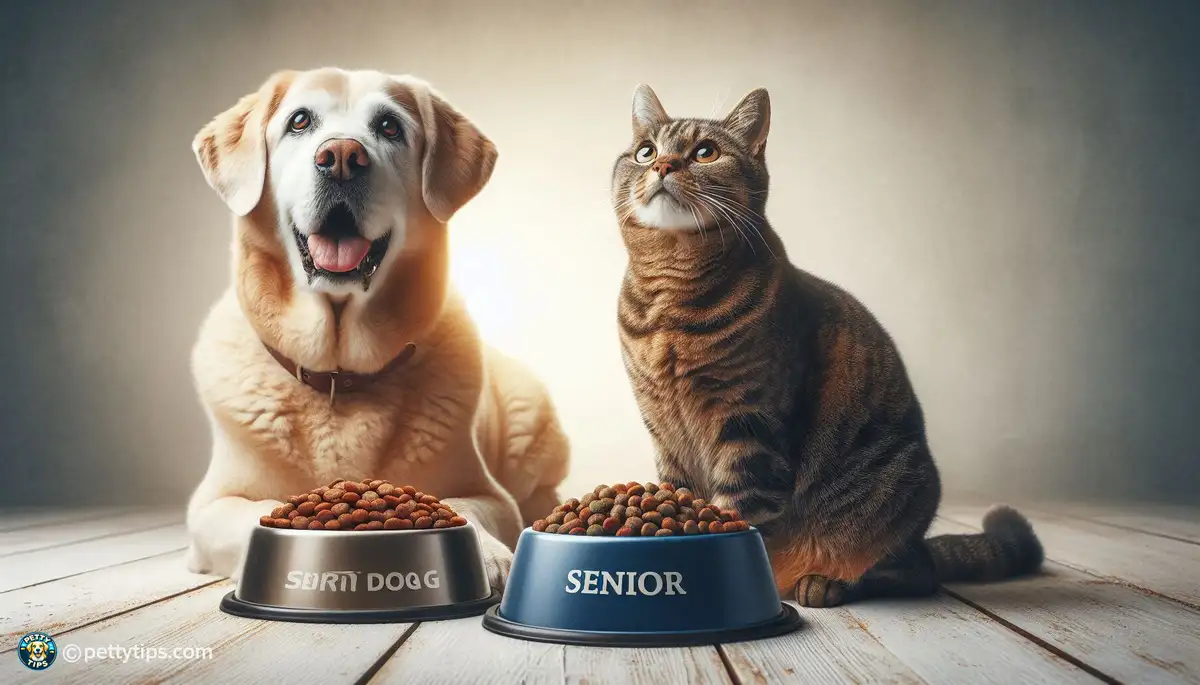
Essential Nutrients for Weight Management in Pets
Julia Jorgenson - Aug 28, 2024 - 7 min read


As our beloved furry companions age, their nutritional needs undergo significant changes. Just like humans, dogs and cats experience physiological changes as they grow older. These changes include a gradual decrease in metabolism, changes in digestive function, and alterations in nutrient absorption. These factors necessitate a shift in dietary requirements to ensure our senior pets remain healthy and vibrant.
Tailoring the diet to meet the specific needs of senior pets is crucial for maintaining their overall health and well-being. While both dogs and cats may face similar age-related challenges, such as decreased mobility and changes in appetite, their nutritional requirements can vary significantly. Understanding these differences allows pet owners to make informed decisions when selecting the right diet for their aging companions.
Protein is essential for senior dogs to maintain muscle mass and support overall health. However, older dogs may require a lower protein intake compared to their younger counterparts, as excessive protein can strain the kidneys. Opting for high-quality, easily digestible protein sources is key for meeting the protein needs of senior dogs without overloading their system.
Incorporating healthy fats into the diet of senior dogs can help support their joint health and cognitive function. omega-3 fatty acids, found in sources such as fish oil and flaxseed, have anti-inflammatory properties that can alleviate symptoms of arthritis and improve cognitive function in aging dogs. Including moderate amounts of healthy fats in their diet can contribute to their overall well-being and quality of life.
senior cats are prone to dehydration due to age-related changes in kidney function and a decreased thirst drive. Ensuring adequate hydration is vital for maintaining their kidney health and overall well-being. Wet or canned food with high moisture content can help increase their water intake and prevent urinary issues commonly seen in aging cats.
Many senior cats experience dental issues such as gum disease and tooth decay, which can make eating dry kibble painful. Opting for softer, moist food or incorporating dental-friendly options into their diet can help alleviate discomfort and maintain their oral health. Additionally, regular dental check-ups and cleanings are essential for preventing dental problems in senior cats.
As pets age, they may develop arthritis or other joint-related issues that can affect their mobility and quality of life. Providing supplements such as glucosamine and chondroitin can help support joint health and alleviate pain associated with arthritis. These supplements can be added to their food or given as treats to promote mobility and comfort in senior pets.
Senior pets may experience digestive issues such as constipation or diarrhea due to age-related changes in gut function. Probiotics and digestive enzymes can help maintain a healthy balance of gut bacteria and improve digestion in aging dogs and cats. Adding these supplements to their diet can promote gastrointestinal health and alleviate digestive discomfort.
Senior pets with kidney disease require a specialized diet low in phosphorus and high in quality protein to reduce the workload on their kidneys. prescription diets formulated for renal support can help manage the progression of kidney disease and improve the quality of life for affected pets. Working closely with a veterinarian to develop a tailored nutrition plan is essential for meeting the unique dietary needs of senior pets with medical conditions.
Obesity is a common issue in senior pets and can exacerbate age-related health problems such as arthritis and diabetes. Implementing a weight management plan that includes portion control, regular exercise, and a balanced diet can help senior pets maintain a healthy weight and reduce the risk of obesity-related complications. Consulting with a veterinarian or veterinary nutritionist can help pet owners develop a safe and effective weight management program for their aging companions.
As our dogs and cats age, their nutritional needs evolve, requiring adjustments to their diet to support their changing health requirements. By understanding the unique dietary considerations for senior pets and implementing appropriate nutrition strategies, pet owners can help ensure their aging companions enjoy a happy, healthy, and fulfilling life. Regular veterinary check-ups and consultations with a veterinary nutritionist are invaluable resources for addressing the individual needs of senior dogs and cats and optimizing their nutritional care.